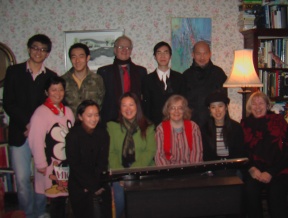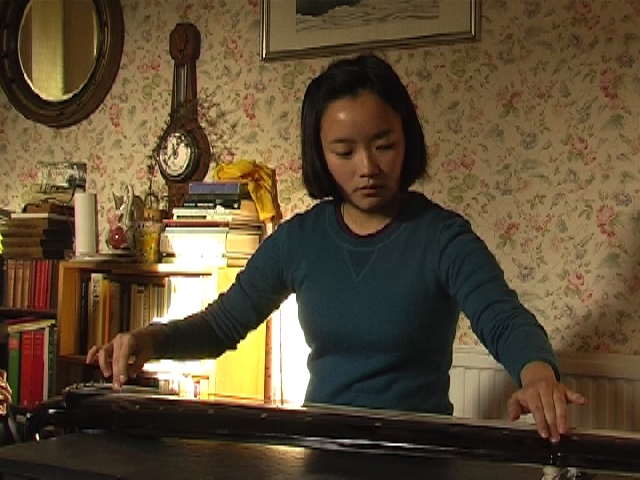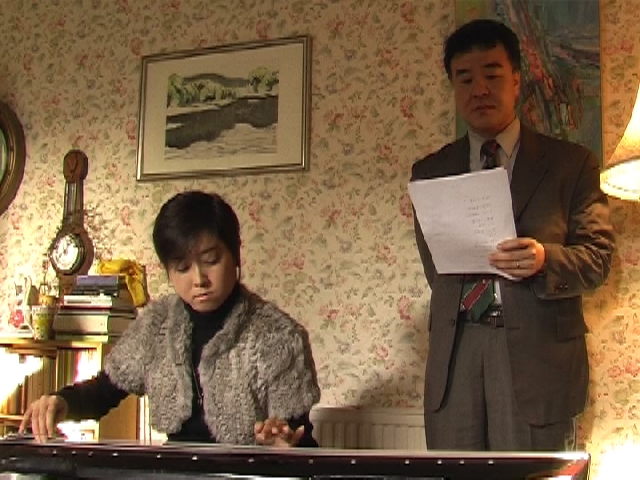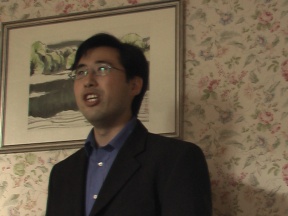

白雲不共海東斉、東海茫々望転迷。終日思親人不知、一日思親十二時、一日思親十二時。
人 は咎むと、咎めじ。ひ とは怒ると、怒らじ。怒りと欲を捨ててこそ、常に心は楽しめ。
Even if someone dares to condemn me for no reason, I would never reproach anyone myself.The lord he served died in 1768, and Gyokudo’s interest turned more towards scholarship and poetry, music and painting. The death of his wife in 1792, and the prohibition by the Tokugawa government of the study of certain “heterodox”doctrines, including the form of Neo-Confucianism expounded by the Ming dynasty Chinese philosopher Wang Yangming, to which Gyokudo subscribed, led him to resolve at last to withdraw from feudal service. There must have been some conflict between Gyokudo and his colleagues in the Ikeda clan before and after this turning point in his life. He made the break in 1794, setting off with his two sons on a series of journeys all over Japan. He made his living chiefly as a musician; he was not a professional painter, although he is one of the most famous painters in Japan today, and he was not much appreciated as a painter during his lifetime. He drank heavily, and some of his pictures are inscribed as having been painted “while inebriated”. He also left a number of poems. Interestingly, all of them contain the characters for wine 酒 or qin 琴; in other words, these are the sole themes of his poems. Eventually, around 1811, Gyokudo settled in Kyoto and stayed there until his death in 1820. His tomb is in Horinji Temple near the Togetsu (Moonlight Crossing) bridge over the Katsuragawa River in Arashiyama.
The music is based
on traditional Japanese court music. The lyrics may be based on his
bitter
experiences with his colleagues at the time of the turning point in his
life,
before and after his withdrawal from the feudual clan system.
 |
 |
 |
| May Wong
playing Meihua San Nong |
Shigeko
and Ichiro Ikezawa: Hitozo |
Chuan
Chengying
singing Hong Hu Shui Lang da Lang |
Copyright the London Youlan Qin Society, 2007. All
rights reserved.